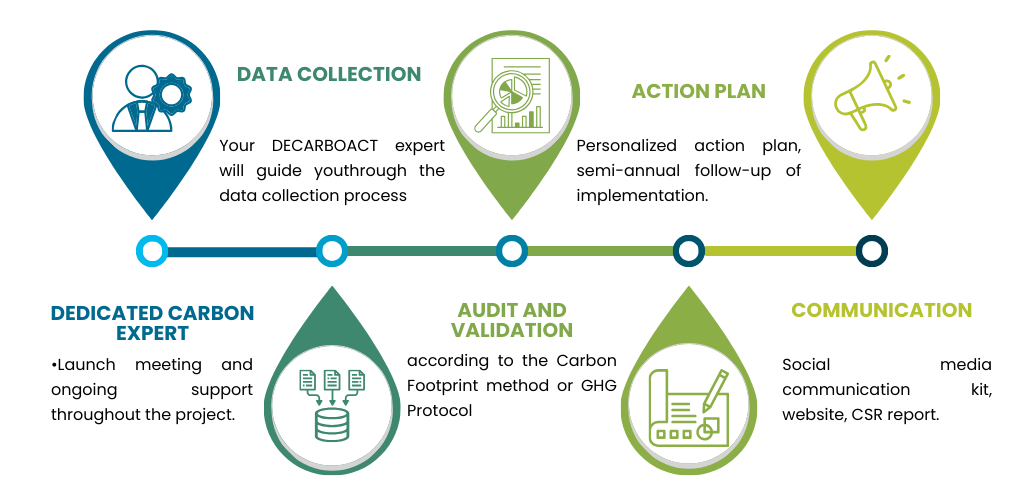Corporate environmental managers use environmental communication to share information with stakeholders and the public.
Le processus de communication avec les parties prenantes est décrit comme suit :

An appropriate framework to speed up decarbonization
We invite you to explore the different sections and discover the documents of the platform to benefit from all the resources available. Together, let's contribute to a sustainable future for Tunisia and a decarbonized future for the planet.
Legal framework for decarbonization in Tunisia
From a regulatory standpoint, decarbonization is supported by the current Tunisian regulations. It is driven by the following main legal texts:
- Decree No. 2004-2144 of September 2, 2004, as amended by Decree No. 2009-2269 (energy audit and prior consultation)
- Law No. 2015-12 of May 11, 2015, on the production of electricity from renewable energy sources and its implementing texts:
- Government Decree No. 2016-1123 of August 24, 2016, setting out the conditions and procedures for the implementation of renewable energy power generation and sale projects, particularly Section 2 (Conditions for the transportation of electricity and the sale of surpluses from renewable energy power generation projects for self-consumption connected to the high or medium voltage network)
- Order setting out the specifications for the technical requirements for the connection and evacuation of energy produced from renewable energy installations connected to the high and medium voltage network
- Order of the Head of Government of December 8, 2023, approving the standard contract for the transportation of electricity produced by self-producing companies from renewable energy sources and the purchase of surpluses by the Tunisian Electricity and Gas Company.
- Decision setting the tariffs for transportation, purchase of surpluses, and deferral of December 12, 2023.

